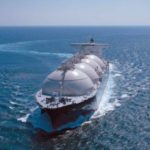IMO 2020 mandate creates Singapore-Fujairah arbitrage for LSFO

The fuel oil market has started to see International Maritime Organization-compliant marine fuel being shipped from Singapore to Fujairah, several market participants told S&P Global Platts, confirming expectations of imminent changes to global trade flows for residual fuels going into 2020.
Spain’s Repsol has fixed a Sovcomflot tanker for a voyage from Singapore to the West Coast of India and Fujairah range, loading 40,000 mt of low sulfur fuel oil over September 15, at a lump sum rate of $675,000, a shipping broker report seen by Platts showed.
Mitsui has chartered an Aframax tanker, the Tyrrhenian Sea, for a Singapore-Fujairah voyage, loading 80,000 mt of LSFO over September 15, at a lump sum rate of $495,000, shipping sources said.
Oil majors have also been among other traders and suppliers to fix trades to ship low sulfur product from Singapore to Fujairah, several traders have said.
Expectations of a pick-up in demand for compliant marine fuel from October, coupled with a dearth of product availability in Fujairah, have led traders to ship product to the Middle East port, sources said.
“The cargoes will arrive in Fujairah in October. There will be emerging bunker demand from October, as some shipping companies will start buying 0.5% bunker fuel from October, based on term contracts,” one Singapore-based fuel oil trader said.
Current ample stockpiles of compliant fuel in Singapore, coupled with a higher price for Fujairah delivered 0.5% marine fuel, have further incentivized sellers to move product there, traders said.
Around 7 million mt of low sulfur material is currently stored on vessels floating in waters off Singapore, with another 1.5 million mt or so of similar product stored on landed terminals in the city state, traders said.
“Fujairah prices are higher than Singapore for 0.5% sulfur bunker fuel.
Spot prices for 0.5% sulfur bunker in Fujairah are around discounts of $40/mt to 10 ppm gasoil prices [on a delivered basis]. Singapore [0.5% sulfur bunker fuel prices] are [at] discounts of $50/mt to 10 ppm gasoil,” said another trader.
Fujairah delivered 0.5% marine fuel has so far this month been assessed at an average premium of $13.64/mt to the same grade delivered in Singapore, up from $9.90/mt in August, S&P Global Platts data showed.
Some of the suppliers with existing stocks in and around Singapore have also capitalized on the arbitrage to create ullage so as to be able to store more compliant fuel, said traders.
“Currently there are enough [0.5% marine fuel] stocks to meet demand until Q1 2020 in Singapore,” said a Singapore-based bunker trader.
STRUCTURAL SHIFT?
These initial trade flows from the east toward the Persian Gulf likely signal the start of a hitherto atypical arbitrage flow for IMO-compliant marine fuels, traders said.
High sulfur fuel oil has traditionally found its way from the Persian Gulf — and most parts of the rest of the world too — to Singapore, the world’s largest ship refueling destination.
Fujairah will be short of low sulfur marine fuel cargoes and it will need to import them to meet its bunker demand, said traders. Currently, only a small number of Fujairah-based companies are able to produce low sulfur marine fuel, sources said.
Refining economics permitting, Vitol’s Fujairah-based 82,000 b/d refinery can produce some 45,000-50,000 b/d of 0.5% sulfur bunker fuel, Vitol Group Director Mike Muller has previously said.
German energy trader Uniper Energy’s Fujairah-based crude processing unit has the capacity to produce between 200,000 mt and 250,000mt for supply to the Fujairah bunker market, said a source close to the company.
“It all depends on how Singapore and Fujairah will balance out,” the source said, adding that the company could potentially supply an additional 200,000 mt of compliant fuel in Singapore.
Uniper has two 40,000 b/d distillation columns in Fujairah, right alongside Vitol’s existing refinery. These two columns, which together constitute a micro refinery of sorts, have been designed to process low sulfur crude to produce ultra low low sulfur fuel oil.
Still, the potential combined output would fall well short of demand.
“Singapore and Fujairah [bunker] markets will move independently after 2020 depending on the fundamentals of each port,” a Dubai-based bunker trader said, with regard to the changing arbitrage flows.
Source: Platts

 Hellenic Shipping News Worldwide Hellenic Shipping News Worldwide, Online Daily Newspaper on Hellenic and International Shipping
Hellenic Shipping News Worldwide Hellenic Shipping News Worldwide, Online Daily Newspaper on Hellenic and International Shipping






















 PG-Software
PG-Software